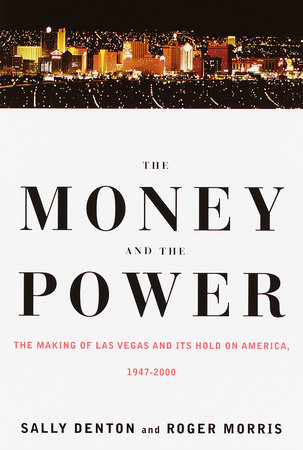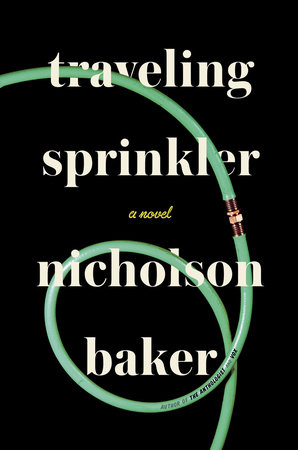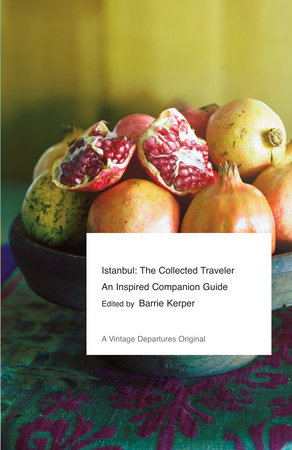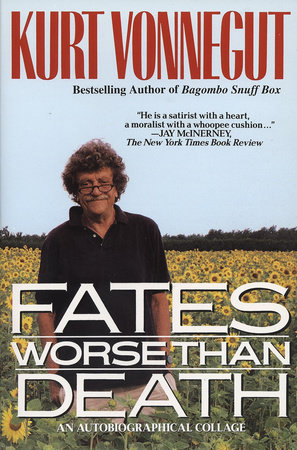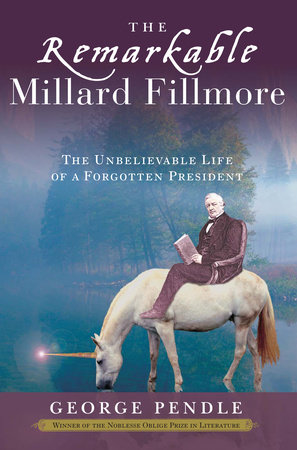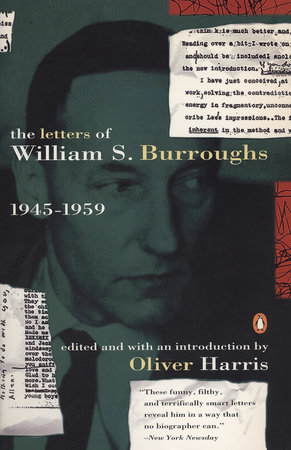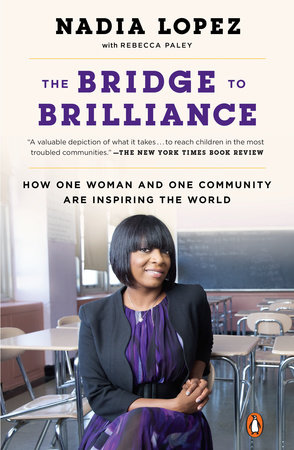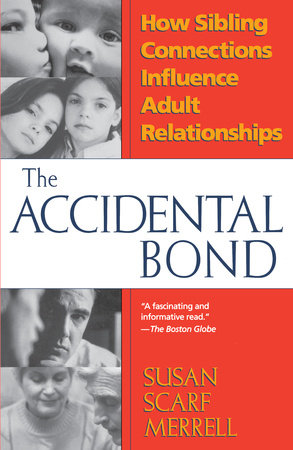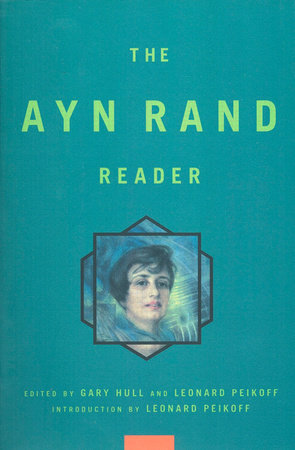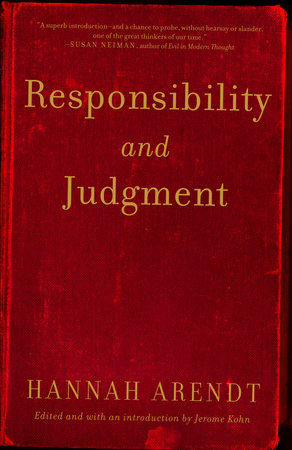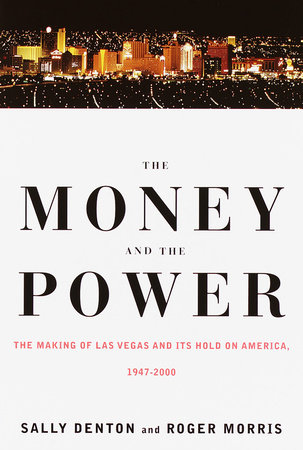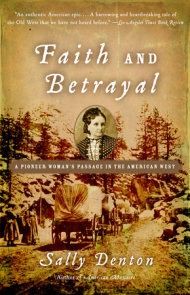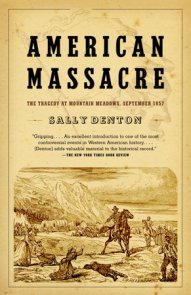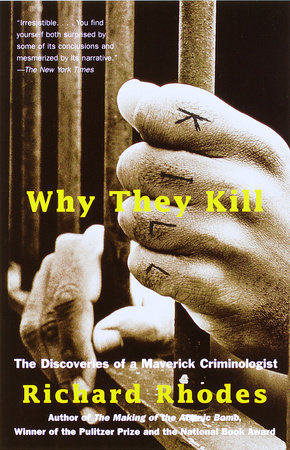Author Q&A
A Conversation with Sally Denton and Roger Morris authors of The Money and the Power: The Making of Las Vegas and Its Hold on America, 1947 – 2000
Q: Why did you write the book?
A: Denton: In almost 25 years as an investigative reporter and writer I have been constantly fascinated by the fact that almost every important story I ever came across—from New Mexico to Kentucky to Washington, DC, from organized crime, to drug trafficking and gun running, to political corruption at every level—sooner or later traced a trail back to Las Vegas. As a child growing up near Lake Mead on the outskirts of the city (I’m a native Nevadan), and especially with parents in the political process, I knew that Las Vegas was a great story — its growth, its glamour, the endlessly intriguing people who came to it, some of them to our home. But it wasn’t until I wrote this book that I understood what the city really was and its absolutely central importance in America and the world.
A: Morris: In my experience in the White House and on the National Security Council, and certainly in my research as a presidential biographer and historian, there always seemed to be something missing in the traditional approach to American politics. The phantom, of course, was the largely unexplored, unacknowledged dark side of American politics, what Daniel Boorstin calls our "hidden history" that Las Vegas epitomizes so starkly. That darkness, those secrets, are not just an aberration. They are often at the heart of the American experience, though historians, like everyone else, are uncomfortable with that reality. I believe that seeing it and confronting it is the only way to make our history whole. I certainly wrote this book because Sally brought me to a deeper understanding of what the city was and is. But I also wrote it very much as part of a larger effort to show what America was and is.
Q: How and when was the Las Vegas Strip founded?
A: Denton & Morris: Conventional history has it that Bugsy Siegel founded the Strip when he opened the Flamingo in 1947. Our book dispels that myth. The Strip was founded by Meyer Lansky and a truly multi-ethnic criminal consortium of underworld and legitimate business with most of the capital coming from the international drug trade, Mormon-dominated banks, and other financial institutions, insurance companies, Wall Street and other ostensibly legitimate interests. The Strip was certainly not founded and sustained by a stereotypical Italian mafia.
Q: How and why did Vegas come to be ruled by such a national, multi-ethnic syndicate?
A: Denton & Morris: As the book shows again and again, Las Vegas was and is ruled by the same forces that did and do rule the rest of America. The corruption of America’s government, economy, and society nationwide in the 1920s and ’30s traced principally to that multi-ethnic force, of which the popular Mafia caricature was only a fragment. Our book shows that from the beginning in the 1940s and ’50s the city became a national, and soon global, money laundering capital of underworld profits from every conceivable pursuit—from petty vice in dozens of American cities and rural areas to international arms trafficking to the Middle East and Central America.
Q: What was the involvement of the Kennedy family in Las Vegas and Nevada?
A: Denton & Morris: The book traces a long and mostly unknown history of the Kennedy family in Nevada. They were not just tourists or customers like so many millions of Americans, and it was not just a story of John Kennedy’s dalliances. Rather, the Kennedys had deep and historic relations with the state and various power brokers in it, beginning with Joseph P. Kennedy, Sr., for whom the Cal-Neva Lodge on Lake Tahoe was a kind of private headquarters for decades. Then there was the financing and fixing of JFK’s 1960 Presidential campaign by Las Vegas forces; then the deep embroilment of the city in the Kennedy administration’s covert war against Fidel Castro; then the ironic attack on some Las Vegas forces by Bobby Kennedy’s war on organized crime, and the role of the city in President Kennedy’s assassination. It’s a tragic and haunting tale, and very illustrative and symbolic of the national reach of the city.
Q: Why was criminal activity rampant for so long? Why did no one put a stop to it? Who is to blame?
A: Denton & Morris: In a sense it is misleading in Las Vegas, and even in much of America, to draw that old distinction between criminal and legal. The system we are describing in the nation and the city is so profoundly and inextricably enmeshed, the old criminal ethic of exploitation and greed is so much the ethic of corporate "legal" America, that the distinctions are difficult to make when it comes to understanding power, the way things really work in America. The short answer is that a practically and/or ethically criminal system survived and survives in Las Vegas and elsewhere because it’s in essence inseparable from the ruling regime.
Q: What was the most startling revelation that you came upon while writing/researching this book?
A: Denton: I was most intrigued by the sheer depth and breadth of all of the machinations around Cuba and Las Vegas in the 1960s, the underlying corruptions of an era in which my own political idealism was formed. The reach of the government-criminal collusions in the assassination attempts of Fidel Castro and the ensuing and abiding compromises that shaped so much of the America and world we live in, the unholy alliances that would become the prototype for decades of covert foreign policy.
A: Morris: Though I worked for two presidents and wrote a biography of one of them and a study of yet another, I have to say rather shamefacedly that as a historian and a journalist I was unprepared for the sheer continuity and depth of the root corruption in American politics and society that so dominates the last 75 years of the 20th century and has so determined the country we are. I especially loved the story of Senator Estes Kefauver, including his corruption hearings in 1950. He deserves a major biography. In a way, his experience says it all.
Q: Would you consider the growth and development of Las Vegas an American success story?
A: Denton & Morris: By the accepted statistical standards, Las Vegas may be the greatest single business success story in American business history. No city has grown faster from an obscure desert crossroads, attracted more visitors, generated more wealth and profits for its size, than Las Vegas. It was, and is, the last of the great American boomtowns, where a lot of people made a lot of money more freely and more rapidly than perhaps anyplace else in America. Las Vegas was indeed a place of the new start and the quick buck for thousands of people. That’s the way Las Vegas, and obviously much of America, likes to see itself. But the dark side of that success and the tragedy for the city and the nation is that it has always been dominated by an oligopoly and it brought the ethics and values of a corrupt company town to the rest of the nation. The price of success was and has been terrible.
Everyone who reads our book will realize that this is not a diatribe against gambling. In fact, both of us believe that Americans, who have a long tradition of wagering, ought to be free to gamble. The issues at at stake are: who controls the billions of dollars involved, how much exploitation is inflicted on gamblers and the rest of society, and how much the huge power generated from this activity controls and distorts the rest of our political, economic, and social system.
Q: What has America learned (if anything) from the rise of Las Vegas?
A: Denton & Morris: Most of America has learned the wrong lessons, if any. Most of the country is still content to see Las Vegas as a distant aberration, a fun place in the desert that has little to do with the reality of their own lives even if casino gambling and the political power of the industry is dominant in their own home states. But as the book makes plain, to come to grips with the reality of Las Vegas is not to understand some pariah city, but rather to confront the underlying reality of America’s worship of money and all its materialism and the devastation of our democracy and economy by that obsession.
Q: What is next on the horizon for you?
A: Denton: I’ve signed a new contract with Alfred A. Knopf for a book whose working title is American Massacre. It is the story of the slaughter in southern Utah in 1857 by other American settlers of an entire wagon train of more than 120 men, women, and children bound for California. The Mountain Meadow Massacre was the worst single atrocity of its kind in American history, and though it has aroused heated passions in some parts of the country among the descendants of those on both sides, it has never been given the full and independent history that it deserves.
A: Morris: I plan to return to themes that were some of my principal interests as a scholar and public servant as well as a writer—specifically reflections on the experiences of Russia and America in the 20th century. I’m interested less in the conventional approach to the Cold War or great power rivalries than in what the deeper interior history of the two nations tells us about the dilemmas of democracy, dilemmas we still very much face in the post-Cold War world. I should say too that this return to older interests has been prompted a great deal by what Sally and I discovered in the research and writing of The Money and the Power.
